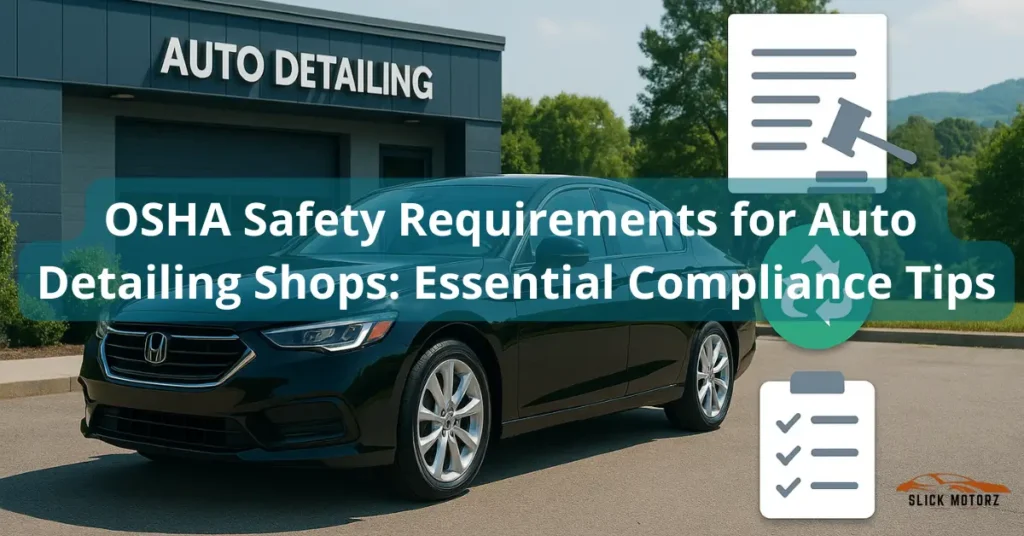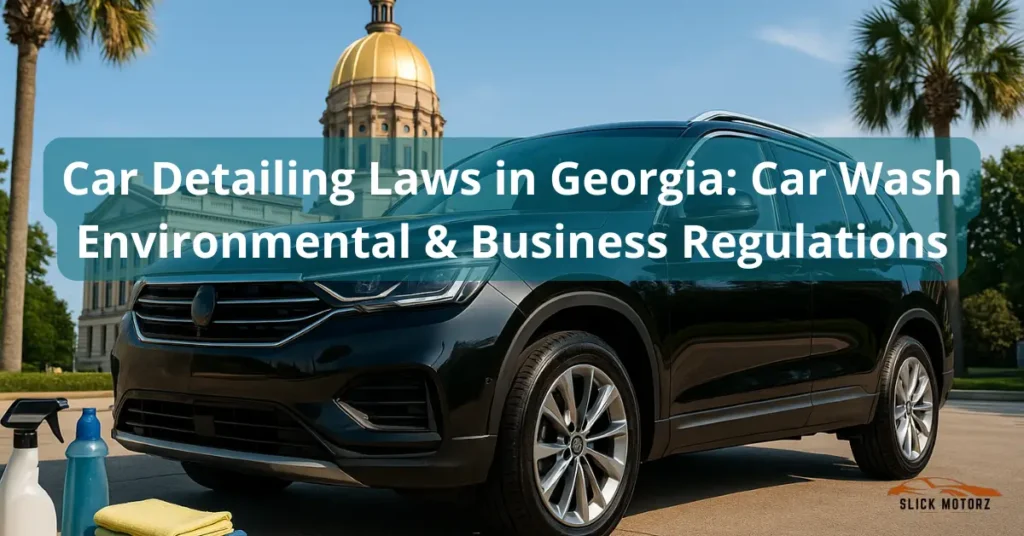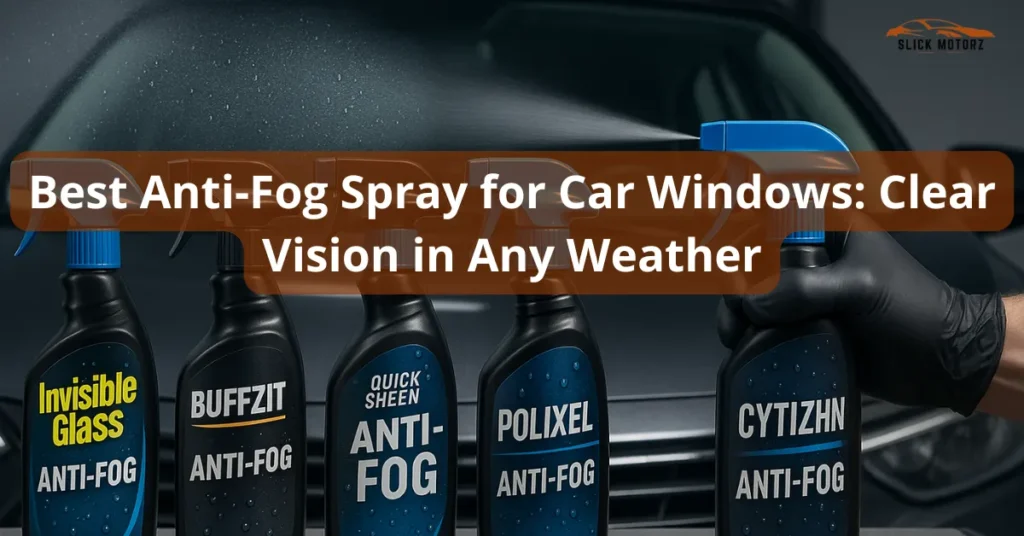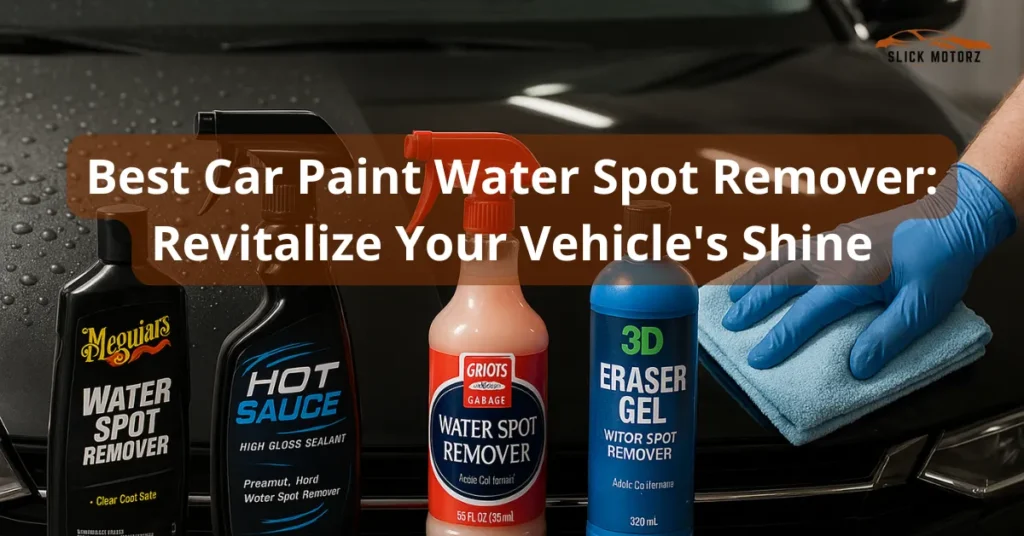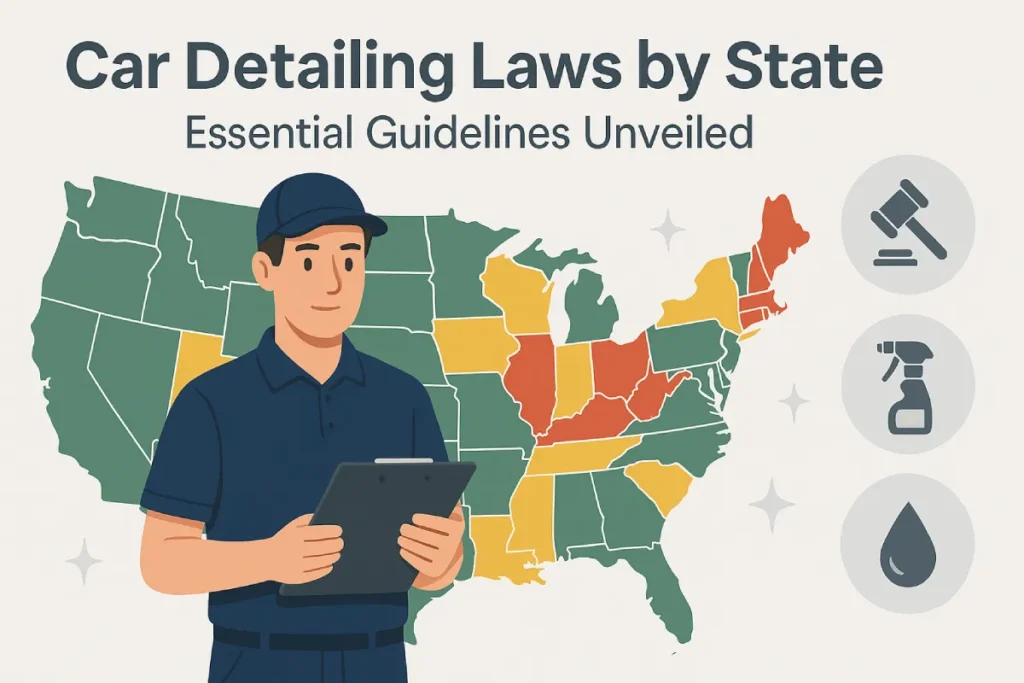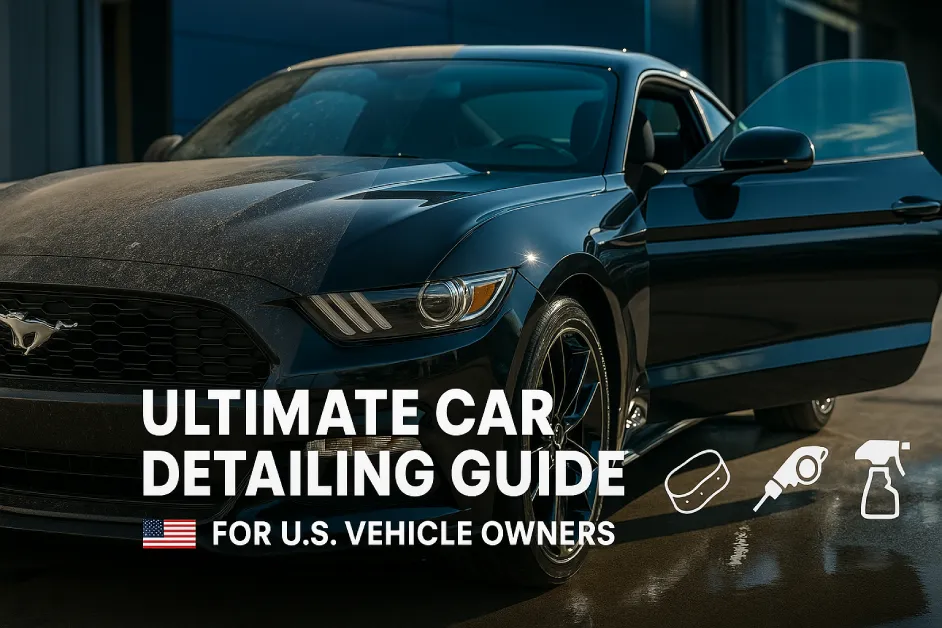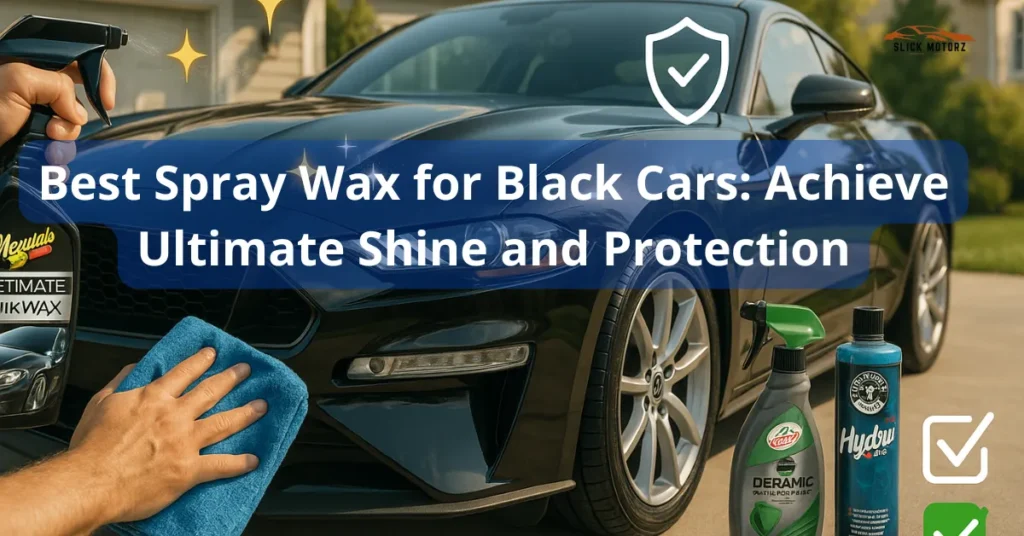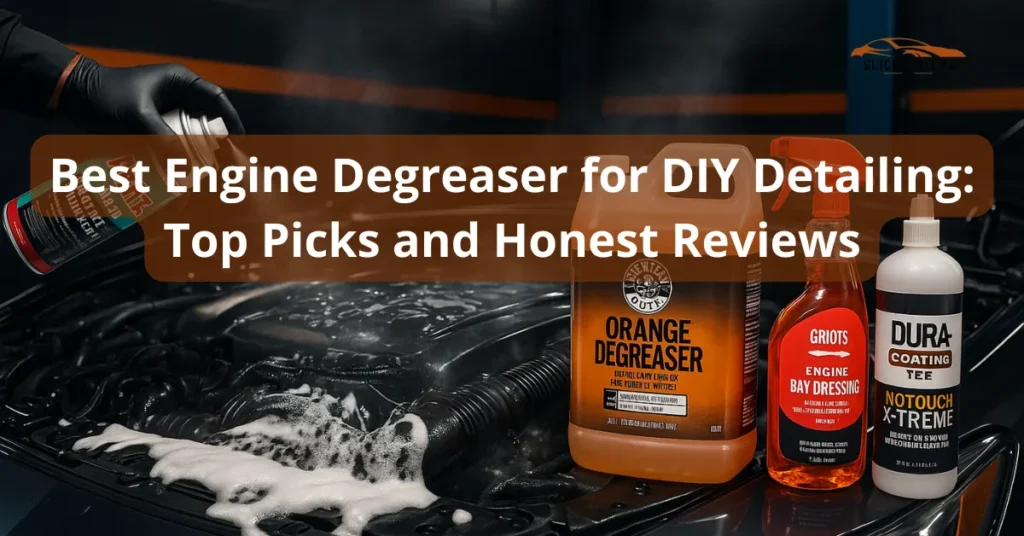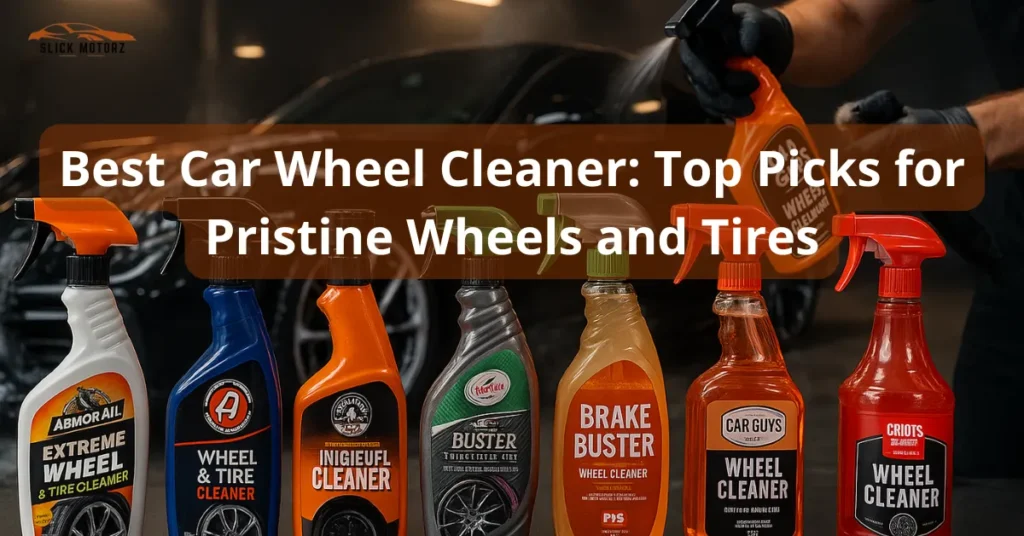If you’re running or planning to start a car detailing business in Pennsylvania, understanding the state’s laws is crucial for your success. You might think detailing is just about cleaning cars, but there are important rules you need to follow—especially when it comes to environmental regulations, licensing, and taxes.
Ignoring these laws could result in costly consequences, including time, money, or even the loss of your business license. This guide will walk you through the key car detailing laws in Pennsylvania, helping you maintain compliance and ensure your business thrives. Keep reading to learn exactly what you need to know to protect your investment and stay ahead of the competition.
Car Detailing Regulations
Car detailing in Pennsylvania requires following specific rules to protect the environment and public health. These regulations control how businesses operate and manage waste. Understanding these laws helps detailers stay compliant and avoid fines.
Both state and local governments set standards for car detailing activities. These standards cover water usage, chemical disposal, and business permits. Complying ensures a safe and legal operation.
Statewide Rules
Pennsylvania enforces strict environmental laws for car detailing. The Clean Streams Law bans polluting water bodies without a permit. Detailers must handle wastewater carefully to avoid illegal discharge.
The state also regulates the use of chemicals and solvents. Businesses must use approved products and dispose of waste properly. Failing to follow these rules can result in penalties or business closure.
Sales tax collection applies to car detailing services. Detailers should register with the state and understand tax obligations. No special license is required, but general business laws still apply.
Local Ordinances
Counties and cities in Pennsylvania may have additional rules. Local zoning laws often restrict where mobile detailers can operate. Some areas require special permits or limit business hours.
Wastewater management is also controlled at the local level. Some municipalities require detailers to connect to sewer systems or use containment methods. Checking local codes before starting a business is crucial.
Noise and traffic rules can affect mobile car detailing services. Operators must follow local noise ordinances to avoid complaints. Understanding local laws ensures smooth business operations without legal issues.
Licensing And Permits
Starting a car detailing business in Pennsylvania requires understanding key licensing and permit rules. These rules ensure the business operates legally and meets state standards. Proper licensing helps avoid fines and keeps the business credible. This section explains the basic steps for licensing and permits in Pennsylvania.
Business Registration
Every car detailing business must register with the Pennsylvania Department of State. Registration creates a legal business entity. Options include sole proprietorship, partnership, or LLC. Registering a business name is also necessary if it differs from the owner’s name. This process protects your brand and allows you to open business bank accounts.
Registration requires submitting forms and paying fees. You can complete registration online for faster processing. After registration, obtain an Employer Identification Number (EIN) from the IRS if you plan to hire employees. Keep all documents safe for future reference.
Special Permits
Certain car detailing activities may require special permits. For example, handling and disposing of wastewater demands compliance with Pennsylvania’s Clean Streams Law. This law prevents pollution of local water bodies. Businesses must get permits to treat or discharge wastewater properly.
Other permits may cover the use of chemicals and hazardous materials. Check local county or city regulations for additional permit requirements. Mobile car detailers might need permits to operate vehicles in public spaces. Always verify permit needs before starting work to avoid legal issues.
Environmental Compliance
Environmental compliance is a vital part of car detailing in Pennsylvania. Detailers must follow laws that protect water and soil from harmful pollutants. These rules help keep communities safe and clean. Understanding these regulations is important for every business offering car detailing services.
Wastewater Management
Pennsylvania law controls wastewater from car detailing operations. Discharging dirty water into streets or storm drains is illegal. Wastewater often contains soap, oils, and chemicals that pollute waterways. Businesses must collect and treat this water properly before disposal. Using licensed wastewater treatment facilities is required. This prevents contamination of rivers, lakes, and groundwater.
Chemical Use Restrictions
Certain chemicals used in car detailing are restricted in Pennsylvania. Hazardous substances can harm the environment and human health. Detailers must use approved, eco-friendly products whenever possible. Proper storage and disposal of chemicals are mandatory. Spills and leaks must be reported immediately. Following these rules reduces the risk of soil and water pollution.
Employment Laws
Employment laws in Pennsylvania set clear rules for car detailing businesses. These laws protect workers and define employer responsibilities. Understanding these rules helps avoid legal issues and ensures fair treatment.
Labor Standards
Pennsylvania follows federal and state labor laws. Employers must pay at least the minimum wage. Overtime pay applies for over 40 hours per week. Workers get rest breaks and meal periods. Employers must keep accurate payroll records. Safety regulations also protect employees from hazards. Car detailing involves chemicals, so safety training is required.
Employee Classification
Correctly classifying workers is crucial. Employees and independent contractors have different rights. Employees get benefits and protections like workers’ compensation. Contractors work independently and handle their own taxes. Misclassifying workers can lead to fines and penalties. Car detailing businesses must review job roles carefully. Clear contracts and job descriptions help avoid confusion.
Tax Obligations
Understanding tax obligations is crucial for car detailing businesses in Pennsylvania. These rules affect how you collect and report taxes on your services. Clear knowledge helps avoid penalties and keeps your business compliant with state law.
Sales Tax Collection
Car detailing services in Pennsylvania usually require sales tax collection. Businesses must charge tax on the total service price. This includes labor, parts, and any additional fees.
Register with the Pennsylvania Department of Revenue to get a sales tax license. Collect the correct tax rate based on your location. File sales tax returns on time to stay compliant.
Tax Exemptions
Some car detailing services may qualify for tax exemptions. For example, services done for government agencies or nonprofit groups might be exempt. Keep proper documentation to prove exemption status.
Sales tax does not apply to repairs and maintenance parts sold separately. Check Pennsylvania’s tax code for specific exemption rules. Always verify exemptions before applying them to your sales.
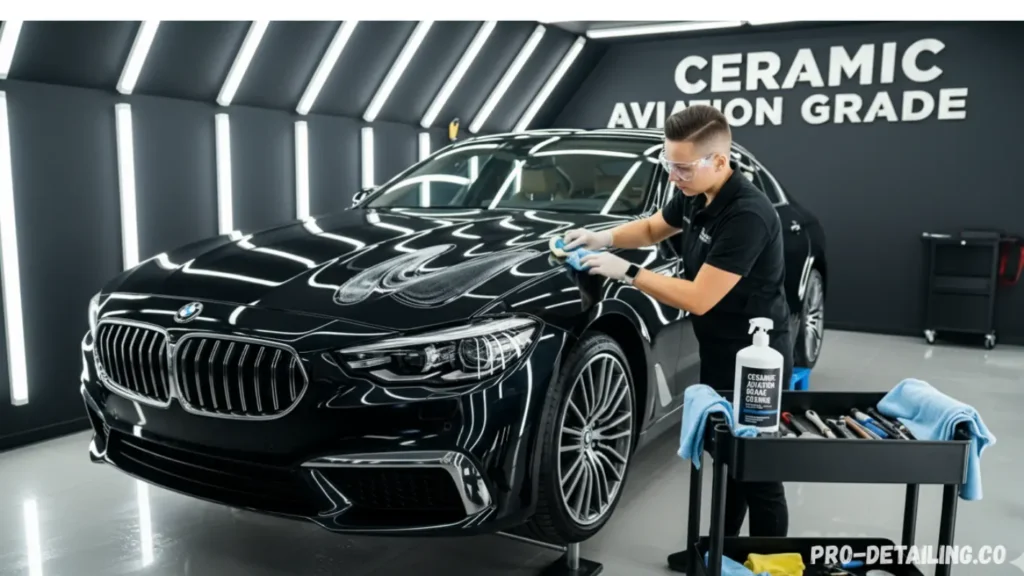
Zoning And Location Rules
Zoning and location rules are important for car detailing businesses in Pennsylvania. These rules control where you can operate your business. They help keep neighborhoods safe and quiet. Understanding these rules helps you avoid legal problems. It also ensures your business fits in the community.
Permitted Areas
Car detailing businesses must follow local zoning laws. Many areas allow detailing only in commercial or industrial zones. Residential zones often have strict limits or do not allow businesses. Check with your city or county zoning office before starting. This step saves time and money. Operating in the wrong zone can lead to fines or shutdowns.
Neighbor Complaints
Neighbors can file complaints if your business causes noise or traffic problems. Complaints may lead to inspections or fines. Keep your work area clean and control noise levels. Communicate with neighbors to reduce conflicts. Address complaints quickly to maintain good relations. Being respectful helps your business stay open and grow.
Mobile Detailing Specifics
Mobile car detailing in Pennsylvania offers convenience and flexibility for both customers and business owners. This service allows detailers to clean and restore vehicles at various locations. However, there are specific laws and guidelines that mobile detailers must follow. These rules ensure safety, environmental protection, and legal compliance within the state.
Operating Restrictions
Mobile detailers must comply with local zoning laws. Operating in residential areas may require special permits. Some municipalities restrict hours of operation to reduce noise. Pennsylvania law forbids dumping wastewater into storm drains or streets. Detailers must use approved methods to dispose of water and chemicals. Registration and business licenses are required to operate legally. Following these restrictions helps avoid fines and business interruptions.
Equipment Guidelines
Mobile detailers must use environmentally safe cleaning products. Harsh chemicals that harm waterways are prohibited. Equipment should prevent spills and leaks during operation. Pressure washers and water tanks must meet state safety standards. Using biodegradable soaps supports Pennsylvania’s Clean Streams Law. Proper maintenance of equipment reduces pollution risks. Keeping all tools in good condition ensures smooth business operations.

Credit: m.yelp.com
Consumer Protection
Consumer protection plays a vital role in Pennsylvania’s car detailing industry. It ensures customers receive fair treatment and quality services. Laws help prevent fraud, misrepresentation, and poor workmanship. These protections build trust between businesses and clients. Understanding these rules helps consumers make informed decisions.
Service Agreements
Service agreements must clearly state the work to be done. They include details like pricing, service types, and timelines. Written contracts protect both parties from misunderstandings. Pennsylvania law encourages transparency in all service agreements. Customers should receive a copy before work begins. This helps avoid disputes over what was promised.
Dispute Resolution
Dispute resolution options exist if problems arise after service. Pennsylvania supports mediation and arbitration to settle conflicts. These methods save time and money compared to court cases. Consumers can file complaints with local consumer protection offices. Businesses often have policies for handling disputes fairly. Knowing these options empowers customers to seek help confidently.

Frequently Asked Questions
What Are The Licensing Requirements For Car Detailing In Pennsylvania?
Pennsylvania does not require a specific license for car detailing businesses. However, you must comply with local business registration and tax regulations. Check with your city or county for any additional permits or zoning restrictions.
Are There Environmental Laws Affecting Car Detailing In Pennsylvania?
Yes, Pennsylvania’s Clean Streams Law restricts discharging pollutants into waterways. Car detailers must manage wastewater properly and avoid releasing harmful substances without permits to comply with environmental regulations.
Can Mobile Car Detailing Operate Legally In Pennsylvania?
Mobile car detailing is legal, but must follow local zoning laws. Operators should ensure proper waste disposal and adhere to any municipal rules regarding business activities and environmental impact.
Do Pennsylvania Car Detailers Need To Collect Sales Tax?
Yes, car detailing services are subject to Pennsylvania sales tax. Detailers must register for a sales tax license and properly collect and remit taxes on their services to the state.
Conclusion
Understanding Pennsylvania’s car detailing laws helps you stay legal and safe. Follow local rules about waste disposal and permits carefully. Keep your business compliant to avoid fines or closures. Know the tax requirements and employee regulations, too. Staying informed protects your investment and reputation.
Always check updates in laws to stay ahead. Simple steps can make your detailing work smooth and trouble-free. Compliance benefits both your business and the environment. Stay responsible, and your car detailing service will thrive in Pennsylvania.


